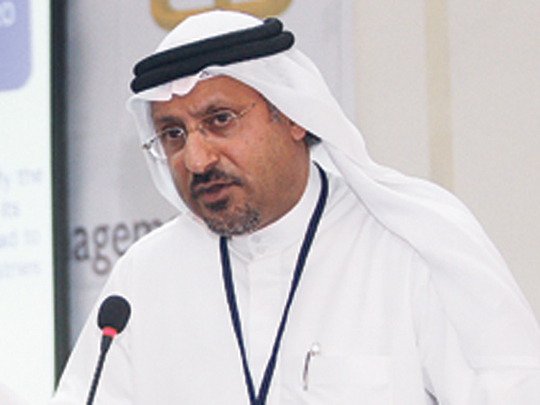
Dubai: Dubai International Academic City (DIAC) has had ambitious plans to make its education cluster the largest in the country. It has succeeded.
"We currently have 15,000 students enrolled at DIAC and Dubai Knowledge Village (DKV) and we aim to reach 25, 000 in five years," said Dr Ayoub Kazim, executive director of DIAC and DKV. "This means we have surpassed UAE University — they have around 13,000 students — and we are very happy to see that we are now the largest academic zone in the country," he added.
He was speaking at the Institute of Management Technology (IMT) in DIAC during the inauguration of the International Conference on Technology and Business Management last week.
Strategic
Dubai International Academic City's (DIAC) location was strategically chosen to allow access to it within two hours from anywhere in the country, said the executive director.
"This zone can be reached within two hours by anyone inside the UAE," said Kazim. "Even if you are in the far Western region of Abu Dhabi you will reach here within just two hours," he added.
DIAC is located on the Academic City road next to Dubai Silicon Oasis, neighbouring Nad Al Sheba four. It allows easy access by students and faculty members from anywhere in the country, which played an instrumental role in making it the largest academic zone, in terms of numbers in the country, said Kazim.
Launched in late 2007, DIAC is already home to 31 academic institutions from 13 countries and boasts a trans-national student body of 35 per cent.
Women make up 45 per cent of the total student body at DIAC and DKV, while men make up 55 per cent, said Kazim. He also revealed that according to a recent Unesco report, DIAC makes up more than 50 per cent of the universities in the country.
"On the GCC level we represent a quarter of the universities in the region," said Kazim. "In terms of the Middle East, DIAC makes up seven per cent of the universities in the Middle East," he added.
Kazim explained the transformation of Dubai into a knowledge-based society as a way of diversifying the economy began with the opening of DKV in 2003. "The UAE's economy revolved around oil and gas from the '60s up until 1986, when the price of oil dropped to $6 (Dh22) per barrel," said Kazim. "That brought the whole region down on its knees as governments and sub-governments sought ways to diversify their economies," he said.












